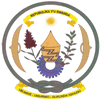Introduction
Public and Private Sector Organizations Involved
The most relevant public and private organizations directly or indirectly
involved in the tea sector comprise of the following:
(a) Public Organizations
-
Ministry of Agriculture and Animal Resources
(MINAGRI) responsible for agricultural development policy and services.
Decentralized units are established at Provincial and district level.
MINAGRI sets the general policy for the development of all sub-sectors
in agriculture. However, with regard to the traditional export crops,
it operates through the national agency specifically responsible
for tea: OCIR-Thé;
-
Ministry of Economy and Finance (MINECOFIN)
and specially (a) the Privatization Secretariat in charge of turning
over the 8 tea factories still managed by OCIR-Thé to private
sector investors and, (b) CEPEX, a unit responsible for coordinating
the different projects that operate in the country. CEPEX performs
a very useful function, facilitating the implementation of development
projects, particularly in the field of planning and budgeting and
streamlining the relationships between the line ministries, the
project coordination units and MINECOFIN;
-
Ministry of Land, Environment, Forestry, Water
and Mines (MINITERRE) is responsible for the conservation of the
natural environment of Rwanda, for land allocation in resettlement
areas, and for formulating proposals for land tenure policies and
legislation. As previously mentioned, the MINITERRE is finalizing
a Land Law that is expected to be enacted in 2006;
-
Ministry of Commerce (MINICOM) sets the policy
framework and oversees the smooth functioning and development of
the domestic and international market of the country. The Office
national de normalisation (ONN), set up in the Ministry, is
mandated to define the rules governing production and marketing
of goods in the domestic and international markets. Within the Ministry,
a special unit funded by UNDP is responsible for market research
and for designing promotional policies and measures for traditional
export crops;
-
Institut des Sciences Agraires du Rwanda
(ISAR) is the main organization responsible for agricultural research.
Heavily affected by the war, during which many-trained staff was
lost, it is still in the process of reconstructing its capacity.
Currently ISAR appears overcharged with responsibilities, as a result
of the heavy demand from projects funded by many donors, including
IFAD;
-
OCIR-Thé was originally established to
provide technical extension services, to control production, processing
and marketing of the tea. Under the liberalization and privatization
reform, it is expected to divest of its production and marketing
activities. OCIR-Thé is the major industrial concern of the
country, owns several large-scale tea estates and 8 tea factories,
and plays a dominating role in the sub-sector. The GoR policy envisages
that after privatization, OCIR-Thé will continue to play
a central role in technology generation and transfer, promoting
and monitoring development, formulating and enforcing a regulatory
framework for the private processing industries and marketing organizations.
OCIR-Thé has a pool of highly trained and experienced technical
and managerial staff with expertise in growing, processing and providing
extension services to growers. These staff represents precious human
capital upon which to build further development of the sub-sectors.
(b) Private Organizations
-
Farmers’ associations and cooperatives.
There are some large cooperatives and associations of tea growers.
In terms of efficiency and capacity, the situation is naturally
highly diversified. Many groups, associations, and formal cooperatives
are confronted with serious operation and management problems and
need considerable support for institutional strengthening and training.
FERWATHE (Federation of Rwandan Tea growers) has supported restructuring
and capacity building of several cooperatives. However, the role
of smallholders within FERWATHE is not proportional to the importance
of smallholders tea growers in the tea sector;
-
National NGOs. Most of these NGOs have substantial
experience in working with rural people on social development and
agricultural production. Some are highly specialized, for example:
ARAMET specializes on aménagement du territoire,
ARD specializes in agricultural development and multiplication of
planting material of improved varieties, DUTERIMBERE specializes
in microfinance and rural institutions, INADES-RWANDA specializes
in cooperative formation and training, IWACU on community development,
participatory approach, and training;
-
TWIN. The TWIN group is one of the Fair Trade
International Organizations Network partners. TWIN is mostly responsible
for work with poor primary producer cooperatives. TWIN skills are
in the mobilization, training, and organization of farmers associations,
and in providing quality control, market information; management
assistance and marketing assistance. TWIN provides the link between
producers and consumers and ensures that farmers understand and
apply the cropping and crop-processing practices required to meet
the standards that would command the highest prices in the international
markets. The policy of the group is to develop, on behalf of cooperatives
of poor producers, specific market niches for labeled products that
can sell at very attractive prices.
|





